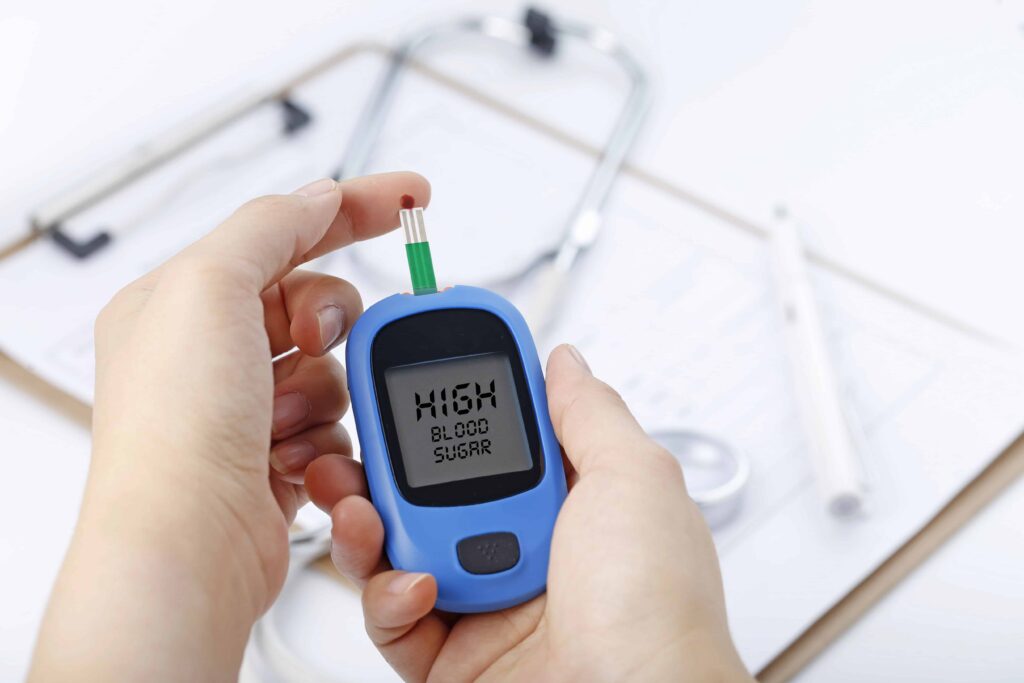Did you know around a whopping half billion people are suffering from diabetes worldwide (1)? Well, no wonder when you see today’s western-style diet dominating the world’s food industry. If you have diabetes or you know someone who does, you know how hard it can be to control your blood sugar level. Once you get this disease, you have to battle it for the rest of your life. And if not contained, diabetes complications can make your life a living hell.

But lucky you, as the saying goes, the solution to most of your health problems begins in your kitchen. Perhaps even more so for diabetes because it is directly linked to your food habits.
Your blood sugar level increases very soon after you take a meal. The food you eat, how much of it you eat, and the time you eat all determine how much your blood sugar level will rise.
It depends on the glycemic index of a food. The Glycemic index ranks a food’s ability to raise blood sugar levels. For a western-style diet, doctors ask people to focus on foods with a low glycemic index to counterbalance the effects of sugary drinks and processed foods.
But when you have a high blood sugar level in the first place, you must choose a diet that regulates it. And here are five mysterious foods that can help you do so!
Reach For Some Kimchi
Growing fresh vegetables has not always been this easy. So humans developed methods to preserve foods, i.e., pickling or fermentation. One food made with fermented vegetables is the traditional Korean dish Kimchi. It is not only low in calories but also has anti-obesity, anti-inflammatory, and anti-cancer properties (2) (3).
But the most crucial benefit of Kimchi is its ability to regulate blood sugar levels. It is rich in minerals and probiotics, linked to improved sugar and insulin sensitivity (4)(5).
According to a study conducted on 23 prediabetics, consuming fermented Kimchi for eight weeks improved glucose tolerance in 33 percent of the participants (6). Another study on 41 diabetic patients showed that eating fermented Kimchi for twelve weeks reduced HbA1c levels (a standard test for diabetes) more than in the control group (7).
Add Okra To Your Diet
The Turkish people have since long used okra for diabetes therapy. It lowers blood sugar by inhibiting specific enzymes involved in the breakdown of complex carbs into glucose. Thus decreasing glucose formation in the gut and the resultant absorption into the blood (8).
It is loaded with blood-sugar-lowering polysaccharides and flavonoid antioxidants (9). The specific polysaccharide in okra with antidiabetic effects is rhamnogalacturonan (10). Research shows that okra may help blood sugar levels and lower your cholesterol as well (11).
Make Sure To Eat Pumpkin And Pumpkin Seeds
Pumpkin is another traditional diabetic remedy that has been widely used all over the globe. In countries like China, Iran, Mexico, Pumpkin became one of the few foods that helped diabetic patients regulate their blood sugar before modern science arrived (12).
Pumpkin is rich in polysaccharides (complex carbs), antioxidants, and fibres that reduce blood sugar levels in both human and animal studies (13) (14). Pumpkin seeds are also an excellent source of fats and proteins and may reduce post-meal blood sugar by up to 35 percent (15).
Have More flax seeds
The flax plant, first grown in the middle east, is now widely cultivated in the rest of the world. But its importance is due to its seeds which are considered to have blood sugar-lowering potential. As the name suggests, flax seeds are filled with fibres and essential fats, which slow food digestion and decrease sugar absorption into the blood (16).
In a study of 120; type 2 diabetic patients, 60 patients received 5 grams of flaxseed gum with their daily food while the rest did not. The study group experienced a 12 percent reduction in their fasting blood sugar level compared with the control group (17). The data is pretty clear on flax seeds’ ability to reduce blood sugar levels as more and more research continues to pour in (18) (19) (20).
Eat Oats And Oat Bran
Oats and oat bran also have similar nutritional benefits as the other foods in this group. They are rich in soluble fibres, which stabilize blood sugar by slowing digestion and decreasing sugar absorption (21).
An analysis of sixteen studies suggests that oat intake reduces HbA1c and fasting blood sugar levels (22). Various small studies also support the claim that oat and oat bran reduce post-meal sugar levels when consumed with or before taking a meal (23) (24) (25).
Regulating your blood sugar level is not an easy job. But what is even more difficult is having the will to do so! You, on the other hand, have already overcome this hurdle. So equip yourself with this new diet plan and keep fighting.





